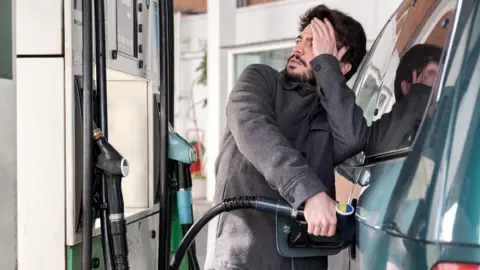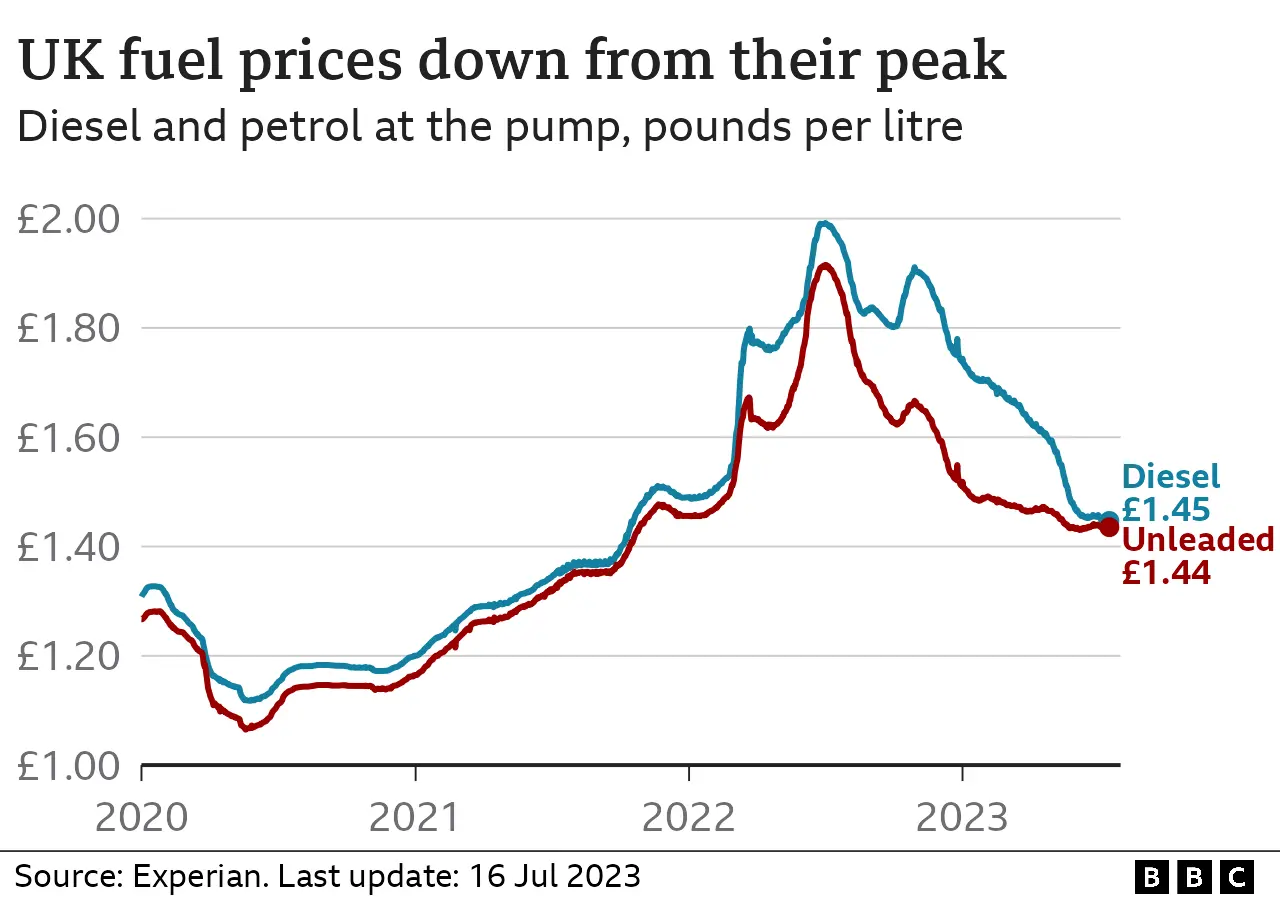Petrol retailers to work on pricing scheme to improve transparency
 Getty Images
Getty ImagesPetrol retailers are to work with the UK's competition watchdog to set up a scheme to allow motorists to compare live fuel prices online.
Supermarkets and major suppliers met Energy Secretary Grant Shapps on Monday after the regulator found drivers were overcharged due to weak competition.
It found annual supermarket margins on fuel had increased by 6p per litre between 2019 and 2022.
Mr Shapps said the new scheme would allow motorists to find the best deals.
The energy secretary said he met with bosses from Asda, Tesco, Morrisons, Sainsbury's and other major fuel retailers to "call time on their inexcusable behaviour of over-charging drivers".
"Today's commitment to a more transparent market is a step in the right direction," he said. "But I'm warning those who fail to put words into actions and continue to rip off motorists - you will be held to account."
The Competition and Markets Authority's (CMA) voluntary scheme will see retailers share up-to-date fuel prices before the new law forces companies to publish live data. The aim is to drive down prices and boost competition, allowing customers to find the "best deals locally", he added.
The government also wants the pricing data to be available to third parties such as satnavs or map apps.
It plans to consult on the scheme this autumn ahead of new laws being introduced. The CMA has also recommended that there is a "fuel monitor" body to oversee the scheme.
It comes after the CMA investigated the UK fuel market earlier this year following concerns falling wholesale prices were not being passed on to consumers.
It concluded competition was "not working as well as it should be".
Petrol and diesel prices have dropped since the record highs last summer sparked by Russia's invasion of Ukraine, when diesel motorists were paying close to £2 a litre.
The CMA found average annual supermarket margins on fuel had increased by 6p per litre between 2019 and 2022 - equivalent to £900m in extra costs for drivers.
RAC fuel spokesperson Simon Williams said: "What's badly needed is an official wholesale fuel price monitoring function which has the power to fine or take action against major retailers who don't lower their forecourt prices when wholesale costs drop significantly.
"While the CMA recommended an element of monitoring wholesale prices in its report in UK fuel retailing, the RAC fears without the threat of consequence in the form of fines, the biggest retailers are unlikely to lower their pump prices quickly enough when the wholesale market trends down."

Howard Cox from FairFuelUK said: "If it [the voluntary scheme] doesn't have teeth, they will have to have full regulatory powers and fine retailers."
Mr Cox said he would like to see retailers commit to a "kitemark scheme" in which they pledged to offer "honest and fair pricing".
"It's very simple and that's something motorists can see as they are driving past," he continued.
At present, retailers only provide price information at petrol stations themselves, making it hard to compare rates, although some websites try to collate this data.
Driving groups say the idea, which is used elsewhere in Europe, is overdue.

How to save money on petrol and diesel
- Watch your speed: The RAC says 45-50mph is the most efficient speed to drive for fuel efficiency
- Switch off the air conditioning: Extra energy is needed to power a car's air conditioning system and turning it on can increase your fuel consumption by up to 10%, according to the AA
- Check your tyre pressure: Underinflated tyres will use up extra petrol. Check your pressures regularly, especially before heading off on a long journey

